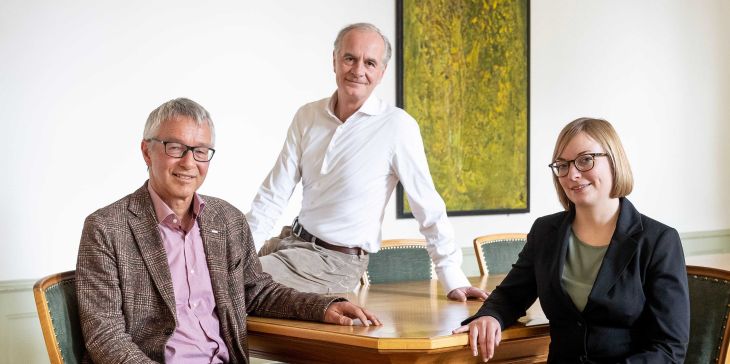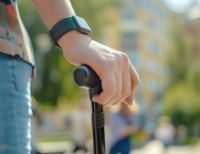How can we encourage people to feel positive about interacting with machines?
Zimmermann: It depends on what you hope to achieve with the technology in question. For instance, do you want to help people experience emotions via virtual reality? Or are you aiming to create genuinely humanlike social interaction in environments such as the care sector, where human connection might be increasingly harder to come by as society ages? Some studies have shown that, depending on how they’re designed, robots can trigger certain emotions in people, thereby creating an emotional bond between humans and technology.
In other words, the more humanlike a robot is, the more affinity we feel for it?
Zimmermann: Yes, but only up to a point. As robots become more humanlike, our affinity for them increases. But then comes a dip in the graph of our emotional response, which is called the “uncanny valley”. That’s the eerie, uneasy feeling we get when we interact with something that is close to appearing human yet is somehow imperfect and out of the norm.
So it’s better for machines not to bear too much similarity to us?
Fleisch: Our experiments with chatbots certainly suggest that machines don’t need to be perfect to create a bond with users. One of our chatbots was used in therapy for obese children as a kind of intermediary between doctors and patients. The goal was to improve the children’s adherence – in other words, to encourage them to comply with their treatment plan. The chatbot was available from morning to night. It learned from the children’s reactions, and they could even give it a name. Whenever they had a question, they could choose whether to ask the doctors or the chatbot. In 99 percent of cases, the kids chose the chatbot!
Computers are making inroads into areas that, until recently, were the domain of humans. What will the task division between humans and machines look like in the future?
Fleisch: In the example I gave of the chatbot for obese children, you always need doctors behind the scenes to support the technology. I don’t see a danger of humans being sidelined, but rather an opportunity to enhance our capabilities. Smart assistants don’t replace doctors, but they can assist and support a patient through a lengthy illness. According to our analyses, chatbots are rarely on par with, or better than, the best doctors, but they are better than the average. And that means digital coaches have the potential to boost treatment quality across the board.
Buhmann: As humans, our capacity to think and perceive things is clearly limited. Evolution gifted us with powers of abstraction and creativity but went easy on the storage capacity – otherwise we would have become databases. When you look at all the scientific knowledge we’ve managed to piece together so far, it has actually required very little descriptional complexity. In fact, all the scientific theories that are accepted today would fit on the back of an envelope. But obviously that’s not reality; it’s simply a selective slice of what our brain is capable of processing. That means we have no way of dealing with higher levels of complexity or building predictive models. What we need is a kind of “thinking co-processor” that can help us adopt a broader view.














